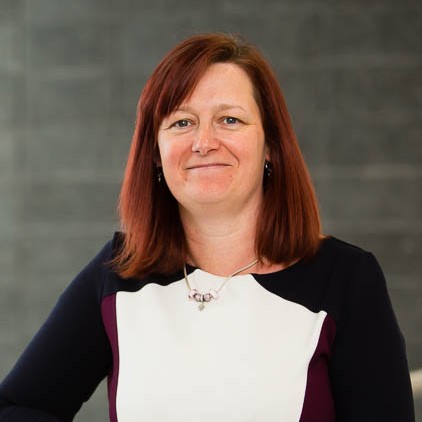 Hello everyone.
Hello everyone.
I considered writing about virtual wards and how our work is progressing, the highs and lows of this important project and the opportunities. For those who want to know it’s going well – brilliant people are involved in putting complex plans in to action locally despite the complexity of regular reporting. But I’m not going to write about that because I find that my mind is often occupied by the twin issues – the support across our systems (sometimes referred to as flow) – particularly for older adults with complex needs and the cost-of-living crisis facing many of our staff and communities. We talk about flow a lot – in all systems – certainly in Leeds and of course at a West Yorkshire Partnership level so I would like to reflect, if I may, a bit on the cost-of-living crisis and its impact on staff and the patients we serve, from my Trust’s perspective.
I know I’m not the only one thinking about this daily. It was discussed at the recent Partnership Board meeting in September and I’m sure there isn’t a place based team (Bradford District and Craven, Calderdale, Kirklees, Leeds and Wakefield District) that isn’t talking about it.
In Leeds we now have a Gold command structure – led by the council specifically to look at the issues of social safety – where I am the NHS representative for the system. It is bringing all our work together, to communicate and problem solve – but, of course, none of it feels enough.
One of the issues that I find myself circling back to again and again is the impact on community-based staff of what they are seeing and will see through the months to come. I don’t think it quite hits the definition of moral injury – see below - but it gets quite close.
Moral injury refers to an injury to an individual's moral conscience and values resulting from an act of perceived moral transgression on the part of themselves or others, which produces profound feelings of guilt or shame—and in some cases a profound sense of betrayal and anger toward colleagues, commanders, the organization, politics, or society at large—moral disorientation, and societal alienation.
I have discussed with our staff how they feel helpless and often angry in the situations of poverty from the suffering they see and which they cannot in totality relieve. How that feels to do every day and to treat the preventable symptoms of coldness, lack of food and lack of hope, is overwhelming. We must understand and listen to staff and how it feels for them to visit people of all ages in cold and damp houses, homes with little or no food, environments where people are distressed because they have little hope. Some are also giving up their pets because they can’t afford to feed them and for some this was the only company they had – the list is endless. There are few district nurses, health visitors, community-based therapy staff who haven’t brought food for a person, fed a cat, put some money in the meter again – the list is far too long.
So, what can we do? First, we can acknowledge and talk about it. We can legitimise how people feel and find a space where the conversations can take place where it's simply ok to be angry and upset. Just as we do after a critical incident we can debrief. We can support. We can provide staff with the information they need to ensure they understand quickly and easily where food banks and food larders are based, how to get the electricity put back on, how to report a damp/ cold house – how to get benefits advice. We must make accessing such information simple. We can give our staff flasks to carry hot drinks with them that they can give to a cold patient. We can ensure staff carry blankets in their cars – for adults, children and babies to allow them to warm people up, we can run our own in-house food banks for our patients’ immediate needs and to give staff that sense of agency they need in the face of often unsolvable misery. We can also give our night sitter staff ways of keeping warm in houses where people can’t afford to keep the heating running. We can, in essence, legitimise and discuss what they are seeing and what is happening, and we can support them in every practical way we possibly can.
In an ordinary winter we sadly see people who are cold and hungry, and children in damp houses with little food in the fridge. Our staff deal with how this makes them feel day in and day out. They increasingly – and they shouldn’t ever have to – dig into their own pockets.
We will end up conveying people to hospital who are so cold or so hungry or cannot be kept at home because they can’t switch on the heating or the lights. I would like to hope it is a never event – but I fear that it won’t be.
We can’t as a system solve the cost-of-living crisis, but we can, and should, do all we can to support our front-line community staff in the NHS and council services who will see the impact of it day in and day out.
Thea


 Hello, my name is Sara, and I am CEO at Leeds and York Partnership Foundation Trust and CEO Senior Responsible Officer for the West Yorkshire Mental Health, Learning Disability and Autism Programme.
Hello, my name is Sara, and I am CEO at Leeds and York Partnership Foundation Trust and CEO Senior Responsible Officer for the West Yorkshire Mental Health, Learning Disability and Autism Programme. Professional curiosity is part of what keeps people safe and helps define the leaders, and the people, we are. We are not blind to the wider pressures everyone is facing, including our workforce, which can make it harder to maintain good mental health. We are continuing to learn from what we do well, taking feedback and looking at the evidence from our service users as we push ourselves to keep making improvements in the care we provide. Supervision, coaching, training and constructive team meetings are important and contribute to ensuring staff have the right skills and behaviours to support people as they work alongside service users at every step of the way. This includes examples such as:
Professional curiosity is part of what keeps people safe and helps define the leaders, and the people, we are. We are not blind to the wider pressures everyone is facing, including our workforce, which can make it harder to maintain good mental health. We are continuing to learn from what we do well, taking feedback and looking at the evidence from our service users as we push ourselves to keep making improvements in the care we provide. Supervision, coaching, training and constructive team meetings are important and contribute to ensuring staff have the right skills and behaviours to support people as they work alongside service users at every step of the way. This includes examples such as: Next week (9 -15 October) is Baby Loss Awareness Week, a national opportunity for bereaved families to commemorate babies’ lives. It is also a chance for organisations like Forget Me Not to raise awareness about baby loss, the impact it can have on families and how the right support at the right time can improve outcomes for those families in both the immediate and long term.
Next week (9 -15 October) is Baby Loss Awareness Week, a national opportunity for bereaved families to commemorate babies’ lives. It is also a chance for organisations like Forget Me Not to raise awareness about baby loss, the impact it can have on families and how the right support at the right time can improve outcomes for those families in both the immediate and long term. It has been almost 18 months since The Partnership launched the
It has been almost 18 months since The Partnership launched the  I
I  Yes, there are many other challenges that could be argued also requiring a relentless focus. But this is not a competition. This isn’t an ‘either’ ‘or’ position. There are people who we work with, who we see daily, that we must deliver real change for.
Yes, there are many other challenges that could be argued also requiring a relentless focus. But this is not a competition. This isn’t an ‘either’ ‘or’ position. There are people who we work with, who we see daily, that we must deliver real change for.